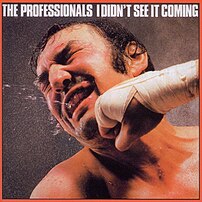Logan Strain’s Four Reasons Why I Don’t Want To Be A Freelancer Anymore is not ideal fare for a Monday morning. In fact, it’s such a grim read it nearly had me weeping into my cornflakes. However it’s still worth a look because I believe the chances are that most freelancers are going to feel this way at some point in their career. (And forewarned is forearmed, after all.)
What makes this article especially worthy of a hat tip, in my opinion, are the tips, suggestions and even criticisms from other freelancers in response to Logan’s tale of woe. Like Mark Smallwood‘s gem:
…The key to freelancing is to learn how to freelance, not just how to perform the task you’re selling… It seems that many people who have authority problems decide that freelancing is the way out. Unfortunately, to be a successful freelancer, you’ll need to obey the authority of more than just a sucky boss at a regular job: you need to obey the requirement to get organized, pay taxes, sell yourself, spend a certain amount of time every day or week building your network and looking for new gigs, and last but not least, dealing with often unreasonable clients while keeping a smile on your face.
There are a couple of excellent points in there.
The best way that I know for translators to “learn how to freelance” is to enrol on the ITI’s Professional Support Group, an online course for translators trying to establish themselves as freelancers in the profession. The course comes highly recommended by translators from all kinds of backgrounds, education and experience levels, including yours truly (a proud participant on the very first course in 2002!) Expect to work hard and put in a minimum of 12 hours a week for the duration of the three to four month course. At £270 for intensive support from eight senior professional translator-tutors it represents incredibly good value for money, and that’s not an honour I bestow lightly. I believe there are also a limited number of bursaries available each year, so check out this page on how to apply and get in early – there’s usually a waiting list.
Image via Wikipedia

